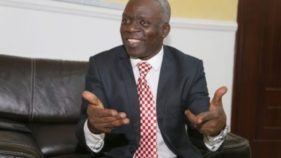By Editor
*Says Proposed NBC And NPC Amendment Is Ill-timed *He Calls On Media Professionals To Mobilize Support Against The Amendment
A Human Rights Lawyer and Senior Advocate of Nigeria, Femi Falana, has reacted to the proposed amendment of the National Broadcasting Commission Act and the Nigerian Press Council Act.
Falana, in an interview with the newsmen, said the amendments are ill timed considering the current atmosphere that has been polluted with the news of Twitter ban.
“The timing is totally wrong as the atmosphere is currently polluted. The sponsors of the anti-media bills should have awaited the resolution of the ban on Twitter.” Falana said
He added, “However, the sponsors have not bothered to familiarise themselves with the struggle for freedom of expression in Nigeria and in neighbouring countries. The colonial regime promulgated the Official Ordinance which prescribed a 14-year jail term for anyone who leaked official documents on the exploitation of the resources of the colonial territory and thereby exposed the atrocities of the British Government. The Public Order Ordinance prohibited public protests against the alien regime. The Criminal Ordinance contained sedition which criminalised the publication, circulation or possession of any statement which exposed the colonial regime to ridicule, odium or embarrassment. Truth was not a defence under the law. The ruling class in the post-colonial regime decided to retain the obnoxious laws. The military junta enacted decrees to jail journalists, proscribe newspapers and close media houses for embarrassing any of the dictators.”
On how to halt the proposed amendments, Falana called on media professionals to mobilise public support against the proposed amendments
He said media in countries like Ghana have succeeded in ll ensuring that all anti-media laws were repealed in their countries. According to him, The Gambia is also currently involved in the decriminalization of the media in that country.
“I know that the media succeeded in Ghana in ensuring that all anti-media laws were repealed. It may interest you to know that the Nigerian case of Arthur Nwankwo v. The State, wherein the Court of Appeal declared sedition law illegal, was one of the materials used by the media to make a successful case for the decriminalisation of the media in Ghana.
The ECOWAS Court has quashed the anti-media law of 2017 enacted by the brutal Yahya Jammeh dictatorship. A couple of years ago, I addressed judges and journalists on the urgent need to repeal all anti media laws. Happily, The Gambia is currently involved in the decriminalization of the media in that country.
Frankly speaking, the Nigerian Union of Journalism, Guild of Editors and Newspapers Proprietors Association of Nigeria ought to have amended their codes to take care of the excesses of social media. With respect to these amendments, the media should mobilise public support and propose alternative amendments for the regulation of social media. It is high time the media in Nigeria began a campaign for the decriminalisation of the freedom of expression.” Falana said.

